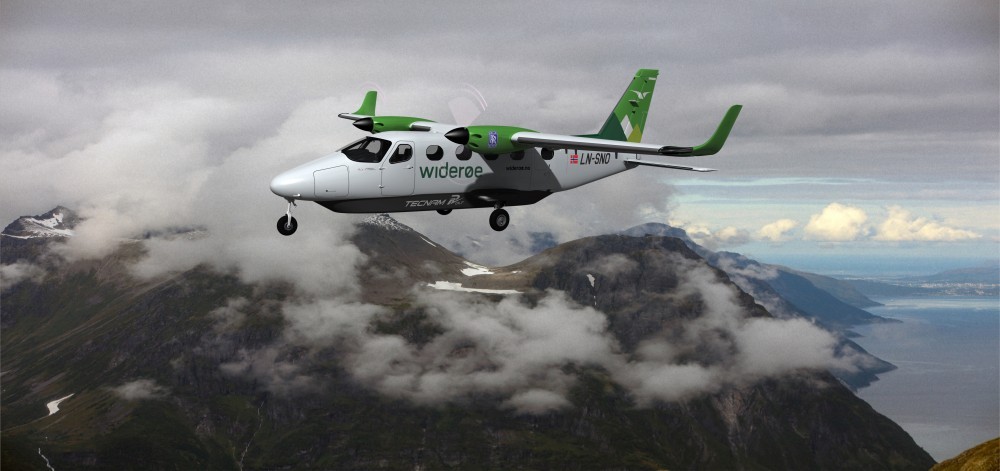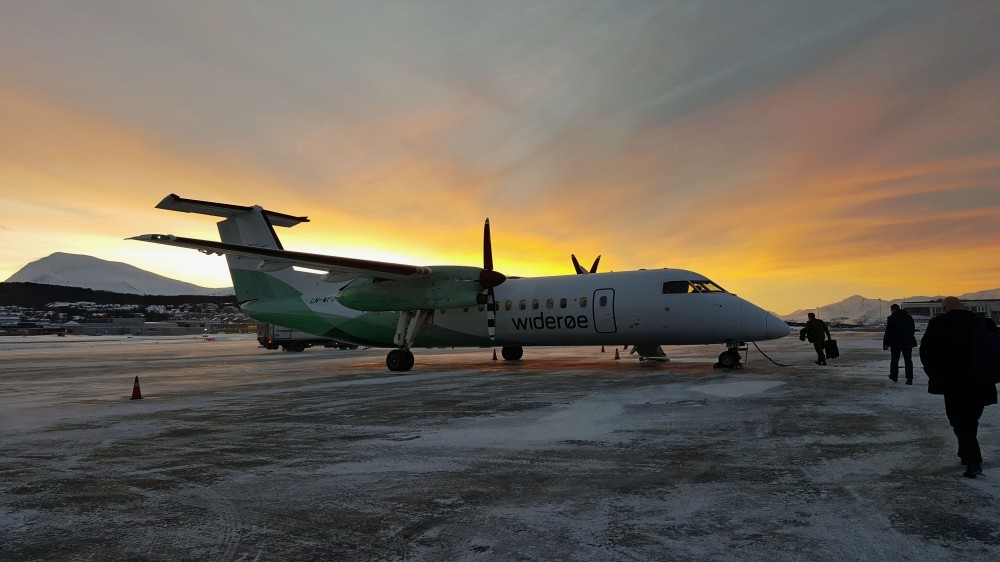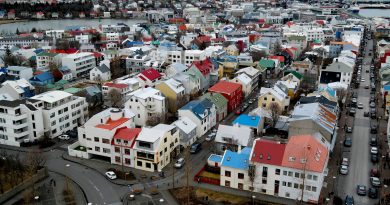Norwegian airline Widerøe aims to launch all-electric plane by 2026

Routes inside the Arctic Circle could be world’s first to see zero emission passenger flights as regional airline Widerøe will be launch operator of the 11-seat P-Volt aircraft.
Rolls-Royce and airframer Tecnam have teamed up to work with Norway’s regional airliner Widerøe to deliver an all-electric passenger aircraft for the short-distance commuter market.
First planes could be ready for take-off on regular commercial flights in 2026.
The aircraft is the P-Volt, with 9-seats plus two pilots.
“This aircraft shows how quickly new technology can and will be developed,” said Stein Nilsen, Chief Executive with Widerøe.
No other regions in Europe has more airports with daily passenger flights than northern Norway. Finnmark, a region larger than Denmark in size and with about 75,000 inhabitants has 11 airports. Also Nordland region and the west coast of southern Norway have an extensive network of routes operated by Widerøe.
The airliner operated around 400 flights to and from 44 airports per day before the pandemic. Widerøe says 74 per cent of the flights have distances less than 275 kilometers. The shortest flights, like between the towns of Vadsø, Vardø and Kirkenes on the coast to the Barents Sea, have durations between seven and fifteen minutes.
Rolls-Royce has developed the electric propulsion system, while Tecnam is an Italian aircraft manufacturer.
“This last year has demonstrated the importance of promoting capillary connections between small communities, while reducing the congestion of the main hubs,” said Fabio Russo, Chief of Research & Product Development with Tecnam.
“We are honored and pleased to see the level of enthusiasm Widerøe and our partner Rolls-Royce are dedicating to this project.”

Norway has previously announced an ambition for all domestic flights to be zero emission by 2040.
Andreas Aks, Chief Strategy Officer with Widerøe welcomes the zero-emission aviation future.
“We are highly excited to be offered the role as launch operator, but also humble about the challenges of putting the world’s first zero emissions aircraft into service. Our mission is to have all new capabilities, processes and procedures required for a zero emissions operator, designed and approved in parallel with the aircraft being developed and certified,” Ask said.
Today, Widerøe operates a fleet of 42 Bombardier Dash-8 aircraft and three Embraer E-190. The Dash-8 planes are for the most built in the 1990s.
Related stories from around the North:
Canada: Hybrid-powered electric cruise ship navigates Northwest Passage, CBC News
Finland: Northern Scandinavia to pioneer commercial flights with electric planes, The Independent Barents Observer
Norway: Electric cars hit record 50% sales in northernmost Norway, The Independent Barents Observer
Russia: Mining boost in Russian central Arctic to feed electric vehicle market, The Independent Barents Observer
Sweden: Giant battery factory bringing economic boom to Northern Swedish city, Radio Sweden
United States: Alaska’s first, electric public transit bus ready to hit Anchorage streets, Alaska Public Media



